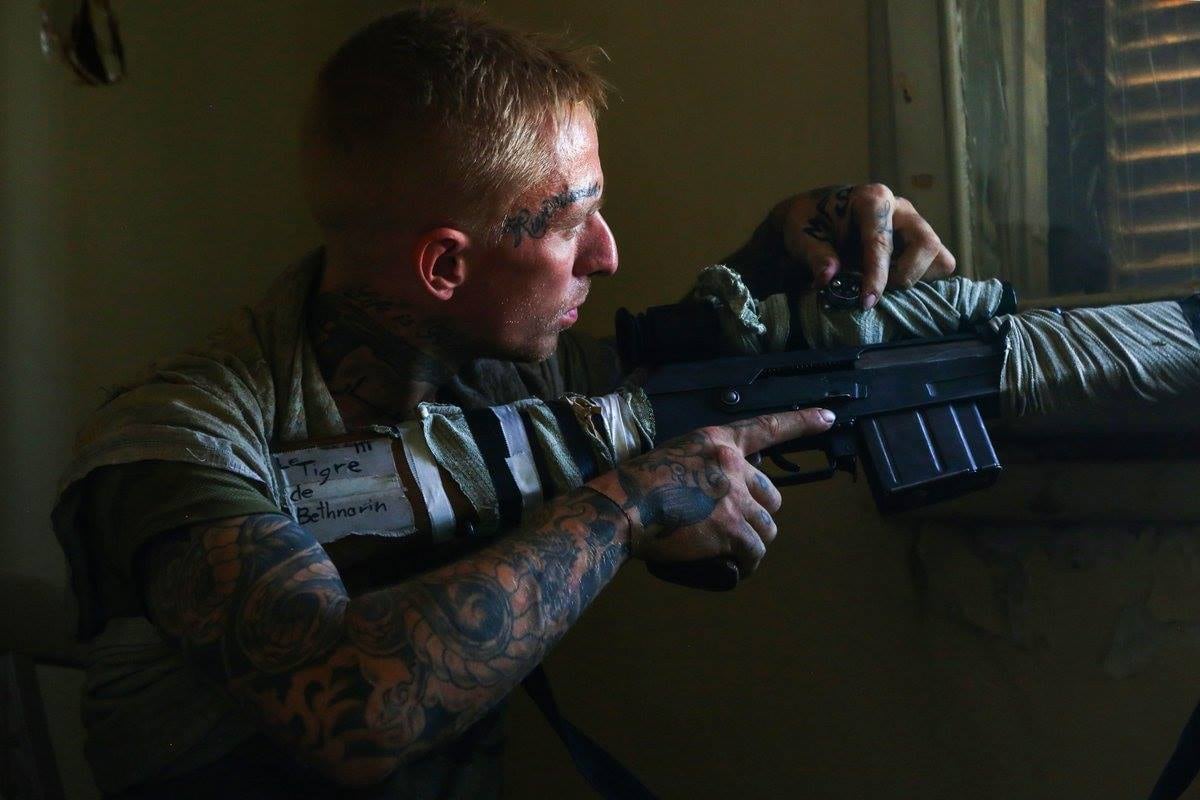WASHINGTON — Taylor Hudson, an American volunteer with the Syriac Military Council says he can’t return home because Iranian-backed militias are controlling most of the border crossings between Iraq and Syria.
Hudson is still in Syria, and recent tensions between Iraq and the Kurdistan Regional Government have complicated his ability to return to the United States.
“Everyone here is saying don’t try to cross right now,” Hudson told Military Times. “Nobody else has had run-ins with militia or regular army yet so I’m not too anxious to be the one to find out what their protocol is before getting confirmation from the consulate.”
Hudson, an American citizen and veteran of the French Foreign Legion, and another American volunteer, Kevin Howard, a Marine Corps veteran, were temporarily held against their will in Syria by the Syriac Military Council, or MFS, a relatively small militia within the U.S.-backed Syrian Democratic Forces, in early October.
Both Americans were released, however only Howard has successfully crossed the border into Iraq. After a short detention by Kurdish officials in Irbil for a visa violation, Howard was able to safely return to the United States, according to friends and family.
RELATED

Many foreign fighters who volunteer with Syrian militias battling ISIS make a perilous trek through Iraq and across the border. When fighters return, they are often detained temporarily by Kurdish Peshmerga or Iraqi forces.
Iraqi forces have taken control of many of the border crossings into Syria from the Peshmerga, and in mid-October Iraqi forces and their Iranian-backed militia known as the Hashd al-Shaabi or Popular Mobilization Forces seized control of Kirkuk. The oil rich city had been in the hands of the Kurds since Saddam Hussein’s ouster in 2003.
The Iranian-backed Iraqi militias claim they have control of many of the border crossings into Syria, confirming the fears of many analysts who have warned about Iran’s goal of creating a large land corridor connecting Iran to Syria and its proxy force Hezbollah in Lebanon.
U.S. officials have attempted to downplay those fears.
“I do not think that there will be any Iranian control of the border from inside of Iraq,” Maj. Gen. James B. Jarrard told reporters at a televised press briefing in the Pentagon on Tuesday.
“I do think that there is that potential in Syria, but that is a question for the Syrian regime, and I do not have good information and am not able to answer that question in sufficient detail that I think would satisfy you,” he said.
A representative of the PMF told Military Times that it controls crossings near Rabia, the village of Um Jaris, Tal Safouk and al Walid. The representative said the PMF will also control the crossing at al-Qaim shortly after Iraqi forces complete an operation launched last week to liberate the Iraqi town from ISIS.
Al-Qaim and Rawah are the last territories in Iraq under ISIS control.
Military Times is not able to independently verify the claims made by the PMF.
The U.S. doesn’t not have any troops or people there to verify any of the claims that have been made, said Col. Ryan Dillon, the spokesperson for Operation Inherent Resolve. But, he added that the coalition has been participating in ongoing talks between the KRG and Iraqi governments.
The diplomatic spat between the Iraqi government and KRG has jeopardized Hudson’s return home.
The U.S. State Department routinely warns against Americans volunteering with Syrian militias overseas.
Hudson’s family says they have reached out to numerous senators, including Arizona Republican John McCain, and have yet to receive any assistance.
Shawn Snow is the senior reporter for Marine Corps Times and a Marine Corps veteran.





